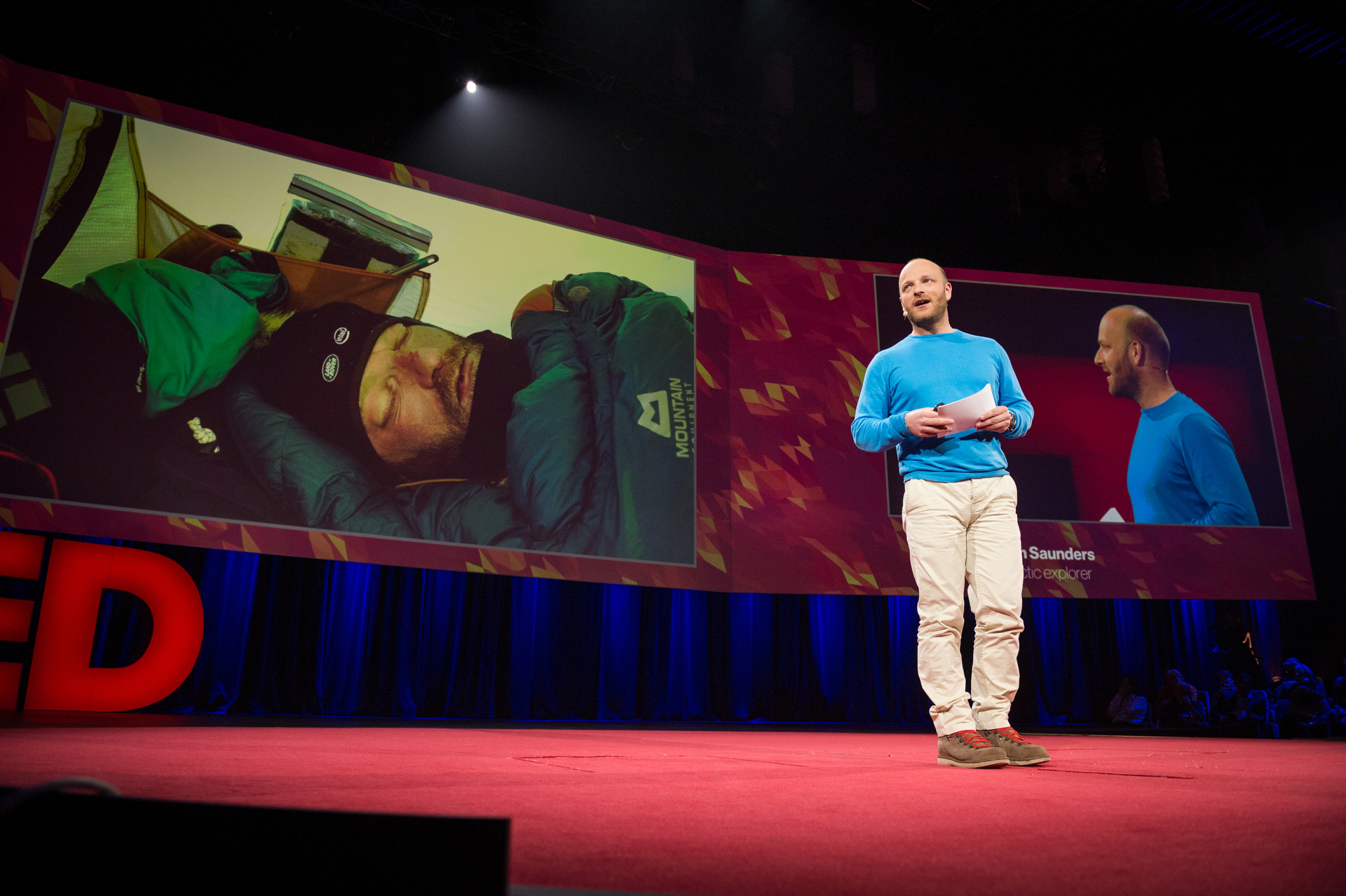On October 25, 2013, adventurer Ben Saunders and his teammate Tarka L’Herpiniere set out to complete Captain Robert Falcon Scott’s failed 1912 polar expedition — a four-month, 1,800-mile journey from the edge of Antarctica to the South Pole and back.
At the start of the expedition, L’Herpiniere and Saunders each dragged 200 kilograms by sledge, heavier loads than each of Scott’s weakest ponies, and about 100 kilograms more than Scott and his men. Over these four months, the pair faced blizzards, temperatures far below zero and vast whiteouts that forced them to move forward blind.
At TED2014, five weeks after the end of this adventure, Saunders addresses the audience with a dry wit and aplomb that betrays a man who just walked 1,800 miles across Antarctica in 105 days. “I stand here before you,” he says, “as an expert in dragging heavy stuff around a cold place … I come from four months in the middle of nowhere mostly grunting and swearing, straight to the TED stage. Last month, my teammate and I finished the most ambitious expedition I’ve ever attempted … The transition hasn’t been entirely seamless.”
In the first talk he’s given about his experience, “This is a story of giving everything we had to something we’ve never done before,” Saunders says. “I’ve seen summarized most succinctly as, ‘Two Explorers Just Completed A Polar Expedition That Killed Everyone The Last Time It Was Attempted,’” he says, which is the headline Business Insider used to describe the journey.
“Scott’s last expedition started as a siege-style,” he says, explaining how the captain set off to explore and map a place we knew “less about than surface of the Moon.” Captivated by the tenacity of Scott and his team, the difficulty of the trip, and the fact that for a century the full expedition went unfinished by any other team, Saunders admits that for years he was absorbed in figuring out why that was, and whether he could be the one to “finish the job.”
After years of leading polar expeditions, Saunders finally decided it was time to try the Scott expedition. “While I can’t claim we were exploring in the Edwardian sense,” he says, “I think we were stepping into uncharted territory in a human sense … If I’m honest, Antarctica challenged me and humbled me so deeply that I’m not sure I’ll ever be able to put it into words. ”
Halfway through, after walking thirty-five marathons back-to-back, L’Herpiniere and Saunders came close to death. They were hypothermic, hypoglycemic, and losing weight at alarming rates. Soon, they ran out of food. Saunders had to make the hardest decision of his life: to call for a resupply flight, which meant that the expedition was no longer “unsupported,” and therefore not purely what he’d set out to accomplish. But “I don’t regret calling for that plane for a second,” he says. Without it, he would never had made it to speak today.
“Telling you this,” he says, “is proof that we can all accomplish great feats through ambition, passion, stubbornness and refusal to quit … that if you dream something hard enough, it does indeed come to pass.”

Comments (3)
Pingback: Communicating from Antarctica: The Scott Expedition - Hootsuite Social Media Management
Pingback: Communicating from Antarctica: The Scott Expedition | WEB SEO BY PANDA